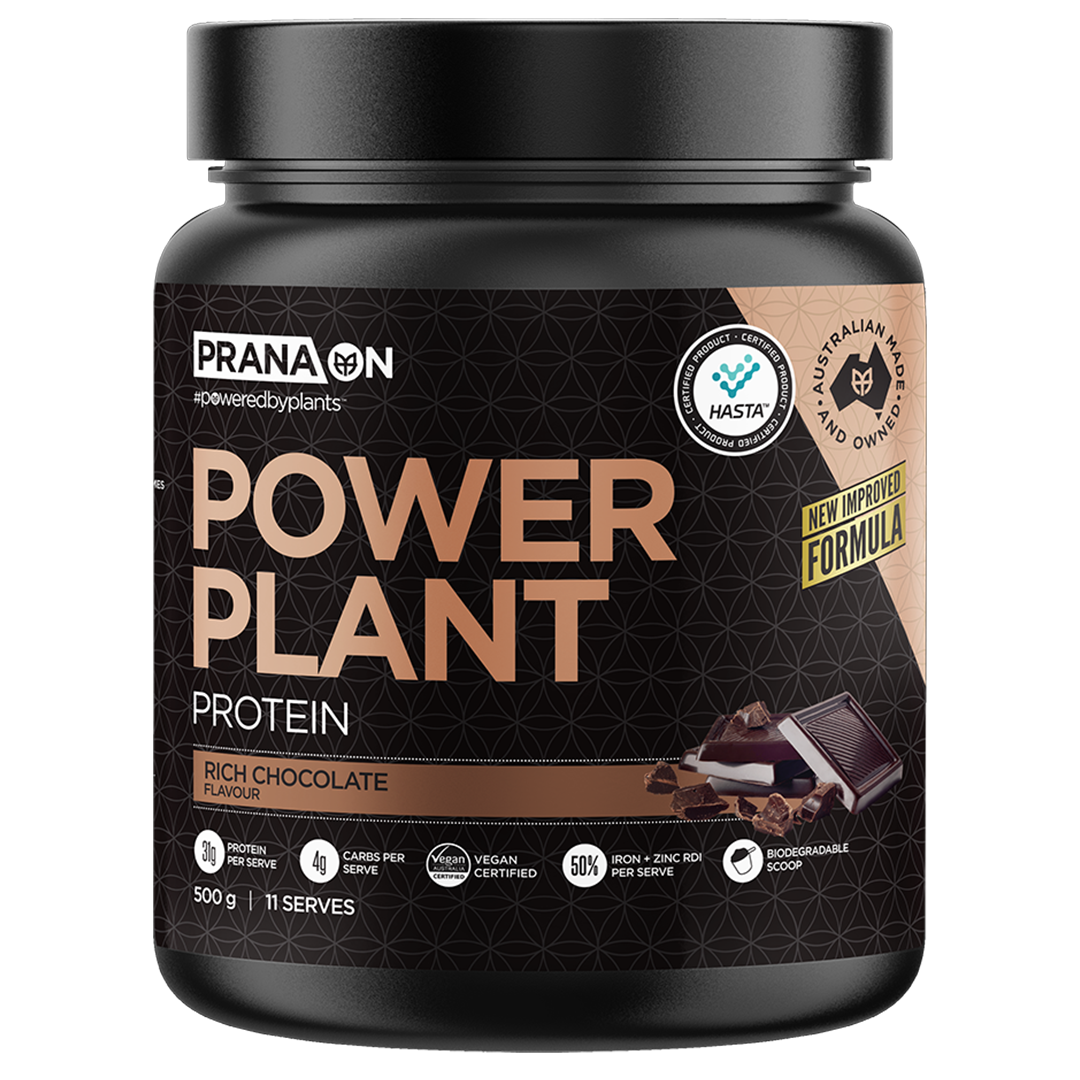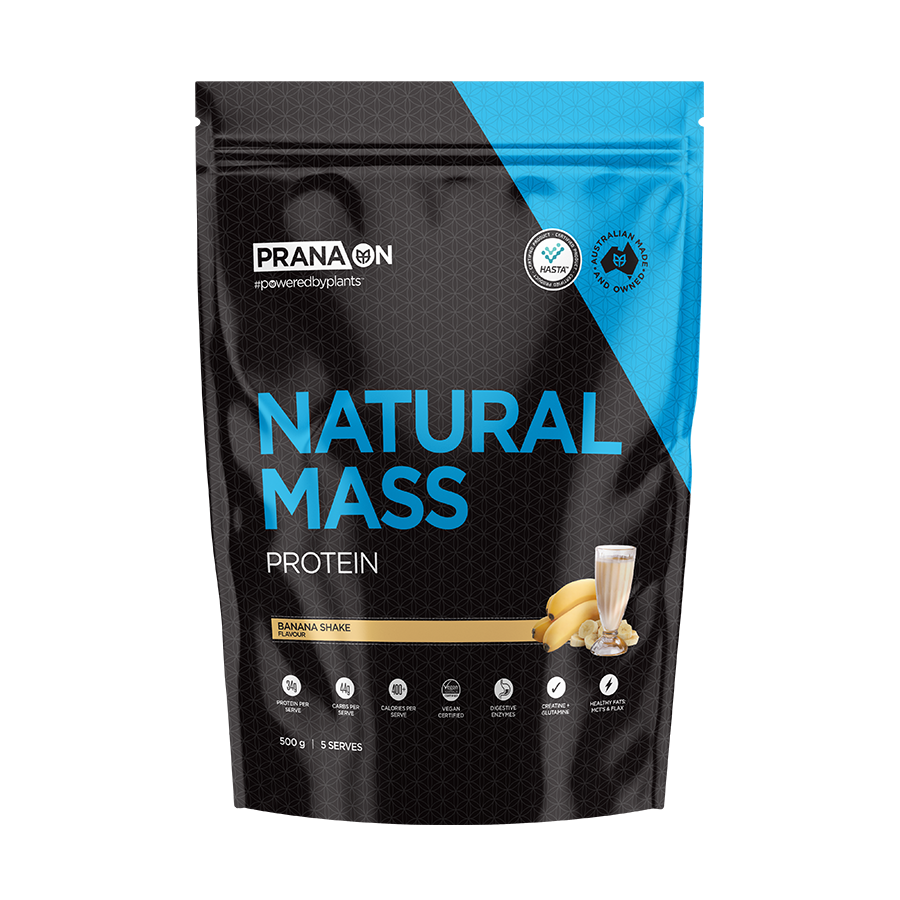Complete Proteins in Plant-Based Protein Powders: Why Choose Power Plant
The Power of Complete Protein: Why PranaON Power Plant is the Best Choice for Your Plant-Based Needs
In the world of health and fitness, protein reigns supreme. This macronutrient plays a vital role in building and repairing tissues, maintaining muscle mass, and supporting a healthy immune system. But for those seeking a plant-based diet, finding complete protein sources can be a challenge.
What are Complete Proteins?
Complete proteins are those that contain all nine essential amino acids, which our bodies cannot produce on their own. These amino acids are crucial for various functions, including protein synthesis, hormone production, and cognitive function. While many plant-based sources offer a good amount of protein, they often lack one or more essential amino acids, making them incomplete proteins (Young & Pellett, 1994).
Why is Complete Protein Important?
Consuming sufficient complete protein is essential for optimal health and performance. It helps with:
- Building and maintaining muscle mass: Protein is the building block of muscle tissue. Consuming enough complete protein helps you build and maintain muscle mass, essential for strength, performance, and everyday activities (Phillips & Van Loon, 2011).
- Supporting a healthy metabolism: Protein can boost your metabolism by increasing the amount of calories your body burns at rest (Thermic Effect of Food). This can aid in weight management and overall energy levels (Westerterp-Plantenga et al., 2009).
- Promoting satiety: Protein keeps you feeling fuller for longer, reducing cravings and helping you control your calorie intake (Batterham et al., 2003).
- Boosting immune function: Protein plays a vital role in the production of antibodies, which help fight off infections and keep you healthy.
Finding Complete Protein Sources: The Power Plant Advantage
While meat, eggs, and dairy are naturally complete proteins, plant-based individuals have several excellent options available. Among them, PranaON's Power Plant protein powder stands out as a truly complete and powerful source of plant-based protein.
Here's what makes Power Plant the perfect choice for your plant-based protein needs:
- Complete Amino Acid Profile: Power Plant provides all nine essential amino acids in the ideal ratios, ensuring your body gets the building blocks it needs to thrive (PranaON Power Plant product page).
- Natural and Plant-Based: Made from a blend of pea protein, brown rice protein, and faba bean protein, Power Plant offers a clean and sustainable source of protein (PranaON Power Plant product page).
- Digestive Enzyme Blend: Power Plant contains a unique blend of digestive enzymes that helps your body break down and absorb protein efficiently (PranaON Power Plant product page).
- Delicious and Versatile: Power Plant comes in a variety of delicious flavours and can be used in smoothies, shakes, baked goods, and more (PranaON Power Plant product page).
In addition to its impressive nutritional profile, Power Plant also offers several other benefits:
- Sustainable: Plant-based protein production requires significantly less land, water, and energy than animal agriculture, making Power Plant a more environmentally friendly choice (Pimentel & Pimentel, 2003).
- Ethical: Power Plant is free from animal cruelty and aligns with vegan and vegetarian values.
- Allergen-Free: Power Plant is free from gluten, soy, dairy, and nuts, making it suitable for people with various dietary restrictions.
Unlocking the Power of PranaON Power Plant
Whether you're an athlete seeking to optimize your performance, a health-conscious individual looking to boost your well-being, or simply someone seeking a delicious and convenient way to add complete protein to your diet, PranaON Power Plant has something to offer you.
Visit our product collection site today to learn more about Power Plant and unlock the power of complete plant-based protein.
References:
- Batterham, R. L., Hetherington, M. M., & Williams, N. L. (2003). Dietary protein and satiety. The American Journal of Clinical Nutrition, 77(1), 99-104.
- Chandra, R. K. (1996). Nutrition and the immune system: an introduction. American Journal of Clinical Nutrition, 63(6), 688S-693S.
- Phillips, S. M., & Van Loon, L. J. C. (2011). Dietary protein for athletes: from requirements to optimum intake. Current Opinion in Clinical Nutrition & Metabolic Care, 14(5), 543-549.
- Pimentel, D., & Pimentel, M. (20






Leave a comment